Former Brazilian President Luiz Inácio Lula da Silva. Illustration: Rodrigo Bento/The Intercept Brasil. Photo: Getty Images
June 9 2019, 5:57 p.m.
Secret Brazil Archive
Part 2
A massive archive exclusively provided to The Intercept confirms long-held suspicions about the politicized motives and deceit of Brazil’s corruption investigators.
AN ENORMOUS TROVE of secret documents reveals that Brazil’s most powerful prosecutors, who have spent years insisting they are apolitical, instead plotted to prevent the Workers’ Party, or PT, from winning the 2018 presidential election by blocking or weakening a pre-election interview with former President Luiz Inácio Lula da Silva with the explicit purpose of affecting the outcome of the election.
The massive archive, provided exclusively to The Intercept, shows multiple examples of politicized abuse of prosecutorial powers by those who led the country’s sweeping Operation Car Wash corruption probe since 2014. It also reveals a long-denied political and ideological agenda. One glaring example occurred 10 days before the first round of presidential voting last year, when a Supreme Court justice granted a petition from the country’s largest newspaper, Folha de São Paulo, to interview Lula, who was in prison on corruption charges brought by the Car Wash task force.
Immediately upon learning of that decision on September 28, 2018, the team of prosecutors who handled Lula’s corruption case — who spent years vehemently denying that they were driven by political motives of any kind — began discussing in a private Telegram chat group how to block, subvert, or undermine the Supreme Court decision. This was based on their expressed fear that the decision would help the PT — Lula’s party — win the election. Based on their stated desire to prevent the PT’s return to power, they spent hours debating strategies to prevent or dilute the political impact of Lula’s interview.
The Car Wash prosecutors explicitly said that their motive in stopping Lula’s interview was to prevent the PT from winning. One of the prosecutors, Laura Tessler, exclaimed upon learning of the decision, “What a joke!” and then explained the urgency of preventing or undermining the decision. “A press conference before the second round of voting could help elect Haddad,” she wrote in the chat group, referring to the PT’s candidate Fernando Haddad. The chief of the prosecutor task force, Deltan Dallagnol, conducted a separate conversation with a longtime confidant, also a prosecutor, and they agreed that they would “pray” together that the events of that day would not usher in the PT’s return to power.
 Read Our Complete CoverageSecret Brazil Archive
Read Our Complete CoverageSecret Brazil Archive
Many in Brazil have long accused the Car Wash prosecutors, as well as the judge who adjudicated the corruption cases, Sérgio Moro (now the country’s justice minister under President Jair Bolsonaro), of being driven by ideological and political motives. Moro and the Car Wash team have repeatedly denied these accusations, insisting that their only consideration was to expose and punish political corruption irrespective of party or political faction.
But this new archive of documents — some of which are being published today in other articles by The Intercept and The Intercept Brasil — casts considerable doubt on the denials of the prosecutors. Indeed, many of these documents show improper and unethical plotting between Dallagnol and Moro on how to best structure the corruption case against Lula — although Moro was legally required to judge the case as a neutral arbiter. Other documents include private admissions among the prosecutors that the evidence proving Lula’s guilt was lacking. Overall, the documents depict a task force of prosecutors seemingly intent on exploiting its legal powers for blatantly political ends, led by its goal of preventing a return to power of the Workers’ Party generally, and Lula specifically.

Photo: Andre Coelho/Bloomberg via Getty Images
The secrets unveiled by these documents are crucial for the public to know because the massive Car Wash corruption probe, which has swept through Brazil for the last five years, has been one of the most consequential events in the history of the world’s fifth-most populous country — not just legally but also politically.
Until now, both the Car Wash task force and Moro have been heralded around the world with honors, prizes, and media praise. But this new archive of documents shines substantial light on previously unreported motives, actions, and often deceitful maneuvering by these powerful actors.
While the Car Wash team of prosecutors has imprisoned a wide range of powerful politicians and billionaires, by far their most significant accomplishment was the 2018 imprisonment of Lula. At the time of Lula’s conviction, all polls showed that the former president — who had twice been elected by large margins, in 2002 and then again in 2006, and left office with a 87 percent approval rate — was the overwhelming frontrunner to once again win the presidency in 2018.
But Lula’s criminal conviction last year, once it was quickly affirmed by an appellate court, rendered him ineligible to run for the presidency, clearing the way for Bolsonaro, the far-right candidate, to win against Lula’s chosen successor, Haddad, the former São Paulo mayor. Supporters of the PT and many others in Brazil have long insisted that these prosecutors, while masquerading as apolitical and non-ideological actors whose only agenda was fighting corruption, were in fact right-wing ideologues whose overriding mission was to destroy the PT and prevent Lula’s return to power in the 2018 election.
These documents lend obvious credibility to those accusations. They show extensive plotting in secret to block and undermine the September 28 judicial order from Supreme Court Justice Ricardo Lewandowski, which authorized one of the country’s most prominent reporters, Folha’s Mônica Bergamo, to interview Lula in prison. Lewandowski’s decision was expressly grounded in the right of a free press, which he said entitled the newspaper to speak to Lula and report on his perspectives.
In his decision, Lewandowski also explained that the arguments that had been used all year to prevent a prison interview with Lula — namely, “security fears“ and the need to keep prisoners silent — were blatantly invalid given the numerous other prison interviews “permitted for prisoners condemned of crimes such as trafficking, murder and international organized crime.” The ruling also noted that Lula was neither in a maximum-security prison nor under a specially restrictive prison regime, further eroding the rationale for a ban on interviewing him.
Up until that point, Lula — widely regarded as one of the most effective and charismatic political communicators in the democratic world — had been held incommunicado, prevented from speaking to the public about the election. Any pre-election interview of Lula, in which he could have offered his views on Bolsonaro and the other candidates, including the PT’s Haddad, would have commanded massive media attention and likely influenced a decisive bloc of voters who, to this day, remain highly loyal to the former president (which is why Lula, even once he was imprisoned, remained the poll frontrunner).
The Car Wash prosecutors learned of the judicial decision authorizing Folha’s pre-election prison interview with Lula when an article about it was posted in their encrypted Telegram chat group. The panic among them was immediate. They repeatedly worried that the interview, to be conducted so close to the first round of voting, would help the PT’s Haddad win the presidential election. Based explicitly on that fear, the Car Wash prosecutors spent the day working feverishly to develop strategies to either overturn the ruling, delay Lula’s interview until after the election, or ensure that it was structured so as to minimize its political impact and its ability to help the PT win.
Reacting to the decision, Tessler, one of the prosecutors, exclaimed: “What a joke!!! Revolting!!! There he goes hold a rally in prison. A true circus. After Mônica Bergamo, based on the principle of equal treatment, I’m sure many other journalists will also be coming … and we’re left here, made to act like clowns with a supreme court like that …” Another prosecutor, Athayde Ribeiro Costa, responded to the decision with one word and numerous exclamation marks: “Mafiosos!!!!!!!!!!!!!!!!!!!!!”
The prosecutors, according to the time stamps on their chats, spent nearly a full day inventing strategies for how to prevent the Lula interview from taking place before the election or at least dilute its impact — from speculating whether a press conference would be less effective than a one-on-one interview, or whether they should petition to allow all other prisoners to be interviewed to distract attention from Lula. Tessler then made clear why these prosecutors were so deeply upset that the public could be allowed to hear from the former president so soon before the election: “Who knows … but an interview before the second round of voting could help elect Haddad.”
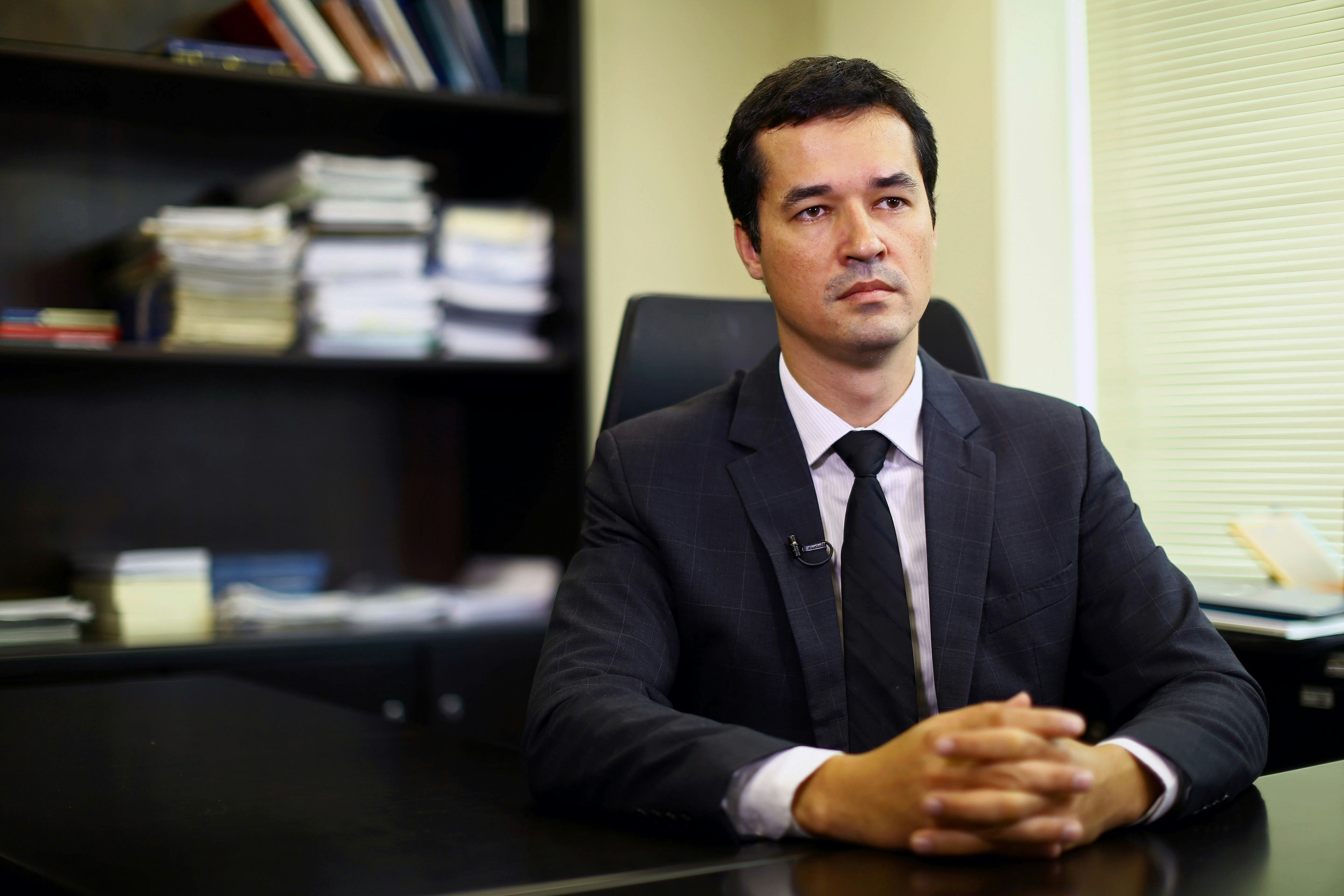
Photo: Heuler Andrey/AFP/Getty Images
While these chats were taking place within the Car Wash chat group, Deltan Dallagnol, the task force’s chief, was also having his own side conversation with a close confidant, a prosecutor who does not work on the Car Wash task force. They both expressly agreed that the chief objective was preventing the return of the PT to power, and the chief prosecutor — who often boasts of his religious piety — agreed that they would “pray” that this did not happen:

Carol PGR – 11:22:08 – Deltannn, my friend
11:22:33 – all of my solidarity in the world to you with this episode …. We’re on a runaway train and I do not know what’s waiting for us
11:22:44 – The only certainty is that we’re together
11:24:06 – I remain very worried about the possible return of PT, but I have prayed frequently for God to enlighten our population and for a miracle to save us
Deltan – 13:34:22 – I’m with you, Carol!
13:34:27 – Pray indeed
13:34:32 – We need this as a country

These admissions of the prosecutors’ true concerns — that a Lula interview could “elect Haddad” and usher in a “return of PT” to power — were hardly isolated confessions. To the contrary, the entire discussion, held over many hours, reads far less like a meeting of neutral prosecutors than a war-room session of anti-PT political operatives and strategists, focused on the goal of determining the most effective way to prevent or minimize the political impact of Lula’s interview.
Athayde Ribeiro Costa, for instance, cynically suggested that the omission of any date in Lewandowski’s decision could allow the Federal Police to purposely schedule the interview for after the election while pretending to comply with the order: “There’s no date. So the Federal Police could just schedule this for after the election, and we’ll still be in compliance with the decision.”
Another prosecutor, Januário Paludo, proposed a series of actions designed to prevent or minimize the Lula interview: “Plan A: we could enter an appeal on the Supreme Court itself, zero probability [of success]. Plan B: open it up for everybody to interview him on the same day. It’ll be chaotic but reduces the likelihood that the interview is directed.”
At no point did Dallagnol, who actively participated in the discussion throughout the day, or any other Car Wash prosecutor, suggest that it was improper for such political considerations to drive prosecutorial strategizing. Indeed, this Telegram chat group, which was used by its participants for many months, suggests that political considerations of this kind were routinely incorporated into the task force’s decision-making process.
The prosecutors lamented among themselves that they were barred from appealing the decision because an appeal in the name of the task force would make them look too political and would create the public perception that their intentions were to silence Lula and prevent him from helping the PT win — which, as these documents reveal, was indeed their actual motive. But later in the day, they learned that a right-wing party, called Novo (meaning “New”), had appealed the decision, and that the authorization to interview Lula was stayed by the court. They boisterously celebrated this news by, among other things, mocking the conflicts that were likely to arise within the Supreme Court (STF) and heaping praise on those responsible for trying to stop the interview:

Januário Paludo – 23:41:02 – Just heard about it…
Deltan – 23:41:32 – lol
Athayde Costa – 23:42:02 – The atmosphere at the STF must be great
Januário Paludo – 23:42:11 – it’s gonna be a war of judicial decisions…

Paludo added, ironically, that “we should thank our Prosecutors’ Office: the Novo Party!” meaning that this right-wing political party, which was also contesting the 2018 election, had performed what the task force themselves wanted to achieve by preventing Lula from being heard.
The appeal from that party resulted in a judicial stay of Lewandowski’s interview authorization. As a result, no pre-election interview with Lula was permitted and he was thus never heard from prior to the voting. Only once the election was concluded and Bolsonaro won did the Supreme Court begin authorizing media outlets to interview Lula in prison. Last month, Bergamo of Folha was permitted to interview Lula jointly with El País Brasil, and shortly thereafter, Lewandowski granted The Intercept Brasil’s petition to interview Lula alone, the video and transcript of which were published by The Intercept.
Once Bolsonaro was elected president, he quickly offered Moro — whose corruption ruling had resulted in Lula’s candidacy being barred — a newly created and unprecedentedly powerful position as what is now called the “super justice minister,” designed to reflect the massive powers vested in Moro.
That the same judge who found Lula guilty was then rewarded by Lula’s victorious opponent made even longtime supporters of the Car Wash corruption probe uncomfortable, due to the obvious perception (real or not) of a quid pro quo, and by the transformation of Moro, who long insisted he was apolitical, into a political official working for the most far-right president ever elected in the history of Brazil’s democracy. Those concerns heightened when Bolsonaro recently admitted that he had also promised to appoint Moro to a lifelong seat on the Supreme Court as soon as there was a vacancy.
Now that the actual conversations and actions of the Car Wash team and of Moro can be revealed and seen, the public — both in Brazil and internationally — will finally have the opportunity to evaluate whether their longtime denials of being politically motivated were ever true.
These September 28 discussions are just the start of reporting by The Intercept and The Intercept Brasil on this archive.
Update: June 9, 2019, 8:13 p.m. ET
The Car Wash task force did not refute the authenticity of the information published by The Intercept. In a press release published Sunday evening, they wrote, “possibly among the illegally copied information are documents and data on ongoing strategies and investigations and on the personal and security routines of task force members and their families. There is peace of mind that any data obtained reflects activities developed with full respect for legality and in a technical and impartial manner, over more than five years of the operation.”
Update: June 9, 2019, 9:53 p.m. ET
Justice Minister Sergio Moro also published a note in response to our reporting: “About alleged messages that would involve me, posted by The Intercept website this Sunday, June 9, I lament the lack of indication of the source of the person responsible for the criminal invasion of the prosecutors’ cell phones. As well as the position of the site that did not contact me before the publication, contrary to basic rule of journalism.
As for the content of the messages they mention, there is no sign of any abnormality or providing directions as a magistrate, despite being taken out of context and the sensationalism of the articles, they ignore the gigantic corruption scheme revealed by Operation Car Wash.”
Parte 2
Em chats privados, procuradores reagiram indignados ao saber que ex-presidente falaria à Folha e celebraram quando ação do Partido Novo impediu a entrevista.
Um extenso lote de arquivos secretos revela que os procuradores da Lava Jato, que passaram anos insistindo que são apolíticos, tramaram para impedir que o Partido dos Trabalhadores, o PT, ganhasse a eleição presidencial de 2018, bloqueando ou enfraquecendo uma entrevista pré-eleitoral com Lula com o objetivo explícito de afetar o resultado da eleição.
Os arquivos, a que o Intercept teve acesso com exclusividade, contêm, entre outras coisas, mensagens privadas e de grupos da força-tarefa no aplicativo Telegram. Neles, os procuradores da força-tarefa em Curitiba, liderados por Deltan Dallagnol, discutiram formas de inviabilizar uma entrevista do ex-presidente Luiz Inácio Lula da Silva à colunista da Folha de S.Paulo Mônica Bergamo, autorizada pelo ministro do Supremo Tribunal Federal Ricardo Lewandowski porque, em suas palavras, ela “pode eleger o Haddad” ou permitir a “volta do PT” ao poder.
Os procuradores, que por anos garantiram não ter motivações políticas ou partidárias, manifestaram repetidamente nos chats a preocupação de que a entrevista, a ser realizada a menos de duas semanas do primeiro turno das eleições, ajudaria o candidato à Presidência pelo PT, Fernando Haddad. Por isso, articularam estratégias para derrubar a decisão judicial de 28 de setembro de 2018, que a liberou – ou, caso ela fosse realizada, para garantir que fosse estruturada de forma a reduzir seu impacto político e, assim, os benefícios eleitorais ao candidato do PT.
Os procuradores, que por anos garantiram não ter motivações políticas ou partidárias, manifestaram repetidamente nos chats a preocupação de que a entrevista, a ser realizada a menos de duas semanas do primeiro turno das eleições, ajudaria o candidato à Presidência pelo PT, Fernando Haddad. Por isso, articularam estratégias para derrubar a decisão judicial de 28 de setembro de 2018, que a liberou – ou, caso ela fosse realizada, para garantir que fosse estruturada de forma a reduzir seu impacto político e, assim, os benefícios eleitorais ao candidato do PT.
Essas discussões ocorreram no mesmo dia em que o STF acatou o pedido de entrevista da Folha de S.Paulo. Conforme noticiado no Consultor Jurídico: “Na decisão, o ministro [Ricardo Lewandowski] citou que o Plenário do STF garantiu ‘a ‘plena’ liberdade de imprensa como categoria jurídica proibitiva de qualquer tipo de censura prévia'”.
Os diálogos demonstram que os procuradores não são atores apartidários e apolíticos, mas, sim, parecem motivados por convicções ideológicas e preocupados em evitar o retorno do PT ao poder. As conversas fazem parte de um lote de arquivos secretos enviados ao Intercept por uma fonte anônima há algumas semanas (bem antes da notícia da invasão do celular do ministro Moro, divulgada nesta semana, na qual o ministro afirmou que não houve “captação de conteúdo”). O único papel do Intercept foi receber o material da fonte, que nos informou que já havia obtido todas as informações e estava ansiosa para repassá-las a jornalistas. A declaração conjunta dos editores do The Intercept e do Intercept Brasil (clique para ler o texto completo) explica os critérios editoriais usados para publicar esses materiais, incluindo nosso método para trabalhar com a fonte anônima.
‘PODE ELEGER O HADDAD’
Naquele dia, a comoção teve início às 10h da manhã, assim que o grupo soube da decisão de Lewandowski. O ministro ressaltou que os argumentos usados para impedir a entrevista de Lula na prisão eram claramente inválidos, uma vez que com frequência entrevistas são “concedidas por condenados por crimes de tráfico, homicídio ou criminosos internacionais, sendo este um argumento inidôneo para fundamentar o indeferimento do pedido de entrevista”. Assim, levando em conta que Lula “não [se encontra] em estabelecimento prisional, em que pode existir eventual risco de rebelião” e tampouco “se encontra sob o regime de incomunicabilidade”, o ministro decidiu em favor da entrevista.
Um clima de revolta e pânico se espalhou entre os procuradores. Acreditando se tratar de uma conversa privada que jamais seria divulgada, eles deixaram explícitas suas motivações políticas.
A procuradora Laura Tessler logo exclamou: “Que piada!!! Revoltante!!! Lá vai o cara fazer palanque na cadeia. Um verdadeiro circo. E depois de Mônica Bergamo, pela isonomia, devem vir tantos outros jornalistas… e a gente aqui fica só fazendo papel de palhaço com um Supremo desse… ”.
‘ando muito preocupada com uma possivel volta do PT, mas tenho rezado muito para Deus iluminar nossa população para que um milagre nos salve’.
Uma outra procuradora, Isabel Groba, respondeu com apenas uma palavra e várias exclamações: “Mafiosos!!!!!!!!!!!!!!!!!!!!!”.
Após uma hora, Tessler deixou explícito o que deixava os procuradores tão preocupados: “sei lá…mas uma coletiva antes do segundo turno pode eleger o Haddad”.
Enquanto essas mensagens eram trocadas no grupo dos procuradores da Lava Jato, Dallagnol estava conversando em paralelo com uma amiga e confidente identificada no seu Telegram apenas como ‘Carol PGR’ (cuja identidade não foi confirmada pelo Intercept). Lamentando a possibilidade de Lula ser entrevistado antes das eleições, os dois estavam expressamente de acordo que o objetivo principal era impedir o retorno do PT à presidência e concordaram que rezariam para que isso não ocorresse.

Carol PGR – 11:22:08 Deltannn, meu amigo
Carol PGR – 11:22:33 toda solidariedade do mundo à você nesse episódio da Coger, estamos num trem desgovernado e não sei o que nos espera
Carol PGR – 11:22:44 a única certeza é que estaremos juntos
Carol PGR – 11:24:06 ando muito preocupada com uma possivel volta do PT, mas tenho rezado muito para Deus iluminar nossa população para que um milagre nos salve
Deltan Dallagnol – 13:34:22 Valeu Carol!
13:34:27 Reza sim
13:34:32 Precisamos como país
Não se trata de uma confissão isolada. Toda a discussão, que se estendeu por várias horas, parece mais uma reunião entre estrategistas e operadores anti-PT do que uma conversa entre procuradores supostamente imparciais.
Descartada a possibilidade de impedir a entrevista, eles passaram a debater qual formato traria menos benefícios políticos para Lula: uma entrevista a sós com Mônica Bergamo, ou uma coletiva de imprensa com vários jornalistas. Januário Paludo, por exemplo, propôs as seguintes medidas: “Plano a: tentar recurso no próprio stf, possibilidade Zero. Plano b: abrir para todos fazerem a entrevista no mesmo dia. Vai ser uma zona mas diminui a chance da entrevista ser direcionada.”
Outro procurador, Athayde Ribeiro Costa, sugeriu expressamente que a Polícia Federal manobrasse para que a entrevista fosse feita depois das eleições, já que não havia indicação explícita da data em que ela deveria ocorrer. Dessa forma, seria possível evitar a entrevista sem descumprir a decisão.
Uma coletiva de imprensa, além de diluir o foco da entrevista, ainda traria a vantagem de possivelmente inviabilizá-la operacionalmente, como pontuou o procurador Julio Noronha horas depois. Ele também sugeriu abrir a entrevista a outros presos para reduzir a repercussão:
(Quando a entrevista foi finalmente autorizada, em abril passado, a Polícia Federal, agora sob o comando do ministro da Justiça de Jair Bolsonaro, Sergio Moro, o ex-juiz que havia condenado Lula à prisão, tentou transformá-la numa coletiva de imprensa. Um pedido do El País acatado por Lewandowski finalmente pôs o plano por terra.)
Em nenhum trecho da conversa Dallagnol, que participou de forma ativa das discussões, ou qualquer outro procurador, indicou desconforto com as motivações políticas explícitas das estratégias da acusação. Mais do que isso, esse grupo de Telegram, ativo por meses, sugere que esse tipo de cálculo político era rotineiro nas decisões da força-tarefa.
Em um momento, um dos procuradores citou um artigo publicado no site O Antagonista informando que a Procuradora-Geral da República, Raquel Dodge, não pretendia recorrer da decisão autorizando a entrevista. Os procuradores especularam imediatamente sobre as causas da escolha de Dodge:
Parte das discussões tratava também de vazar uma eventual petição para veículos de imprensa.
Os procuradores da força-tarefa estavam tão alarmados com a possibilidade de uma entrevista de Lula levar o PT à vitória que compartilharam um artigo irônico do Antagonista. Publicado naquele dia, o texto sugeria que, num eventual governo Haddad, “Lula sai da cadeia e os procuradores da Lava Jato entram no lugar dele”.
Os receios dos procuradores, porém, foram logo acalmados. Às 22h49 do mesmo dia, o procurador Julio Noronha compartilhou mais uma reportagem do Antagonista, dessa vez com uma boa notícia: “Partido Novo Recorre ao STF Contra Entrevista de Lula”. Uma hora depois, o clima era de comemoração. O ministro do STF Luiz Fux concedeu uma liminar contra a entrevista, atendendo ao pedido do Partido Novo. Na decisão, o ministro diz que “se faz necessária a relativização excepcional da liberdade de imprensa”. Januário Paludo foi taxativo: “Devemos agradecer à nossa PGR: Partido Novo!!!”.
Os procuradores não demonstraram preocupação com o fato de um ministro do STF ter poder para suspender a liberdade de imprensa – ou de que um partido que se diz liberal entrou com um pedido nesse sentido. Pelo contrário, os procuradores comemoraram a proibição.
POR ANOS, A LAVA JATO foi acusada de operar com motivações políticas, partidárias e ideológicas, e não jurídicas. A força-tarefa vem negando isso de forma veemente. Agora que suas conversas estão se tornando públicas, a população terá a oportunidade de decidir por si mesma. As discussões do dia 28 de setembro trazem indícios significativos de que a força-tarefa não é o grupo apolítico e apartidário de luta anticorrupção que os procuradores e seus aliados na mídia tentam pintar.
Ao contrário do que tem como regra, o Intercept não solicitou comentários de procuradores e outros envolvidos nas reportagens, para evitar que eles atuassem para impedir sua publicação e porque os documentos falam por si. Entramos em contato com as partes mencionadas imediatamente após publicarmos as matérias, que atualizaremos com os comentários assim que forem recebidos.

PARTE 3
Exclusivo: Deltan Dallagnol duvidava das provas contra Lula e de propina da Petrobras horas antes da denúncia do triplex
Uma enorme coleção de materiais nunca revelados fornece o olhar sem precedentes sobre as operações da força-tarefa anticorrupção que transformou a política brasileira e conquistou a atenção mundial.
Parte 2
Em chats privados, procuradores reagiram indignados ao saber que ex-presidente falaria à Folha e celebraram quando ação do Partido Novo impediu a entrevista.







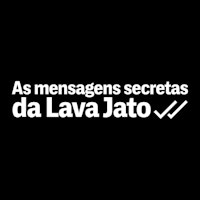


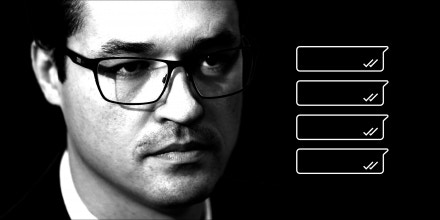
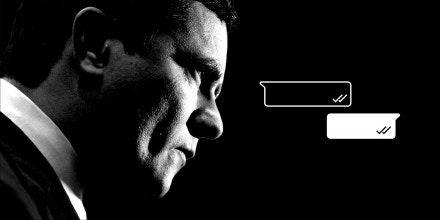


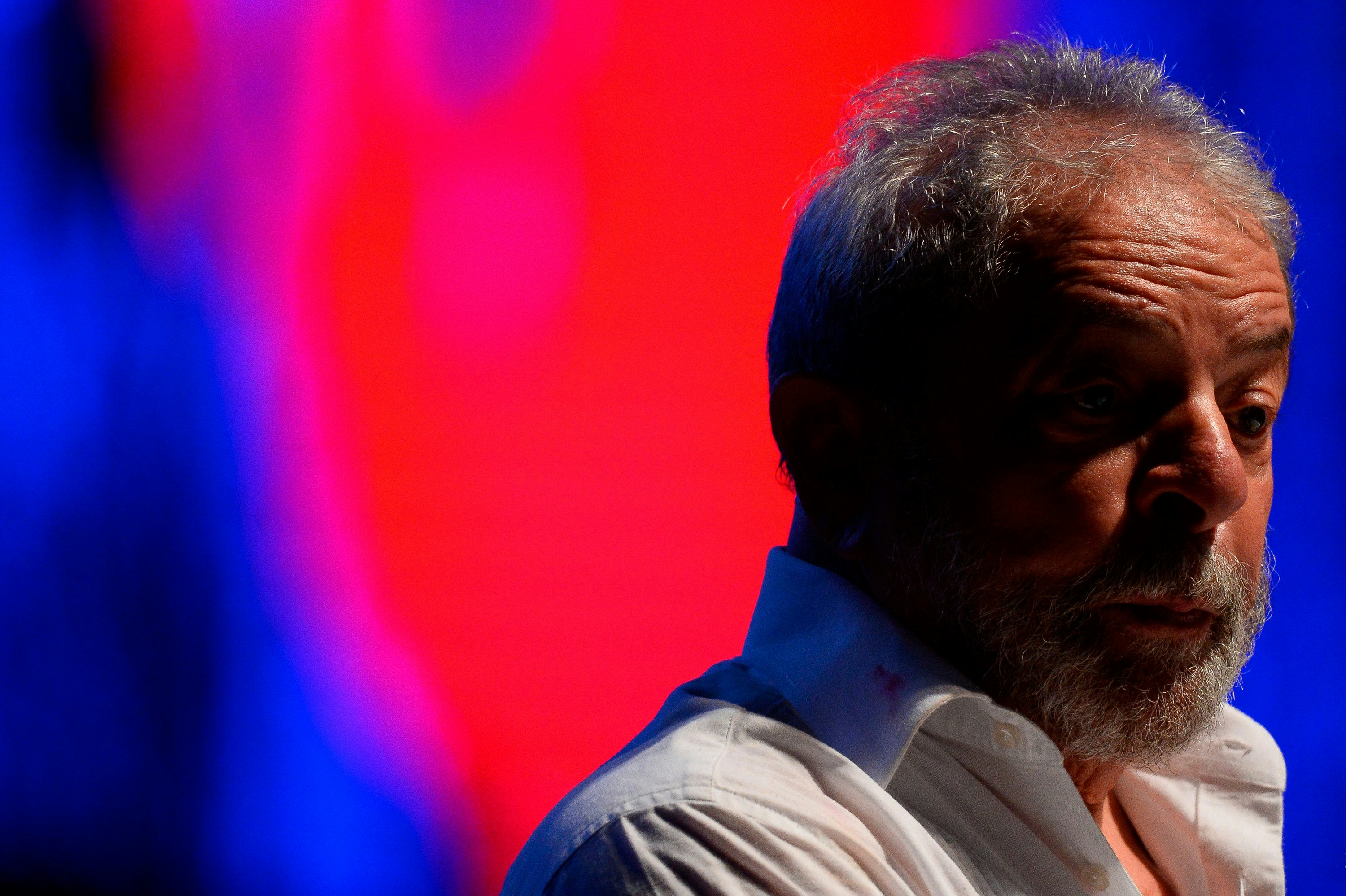
Nenhum comentário:
Postar um comentário